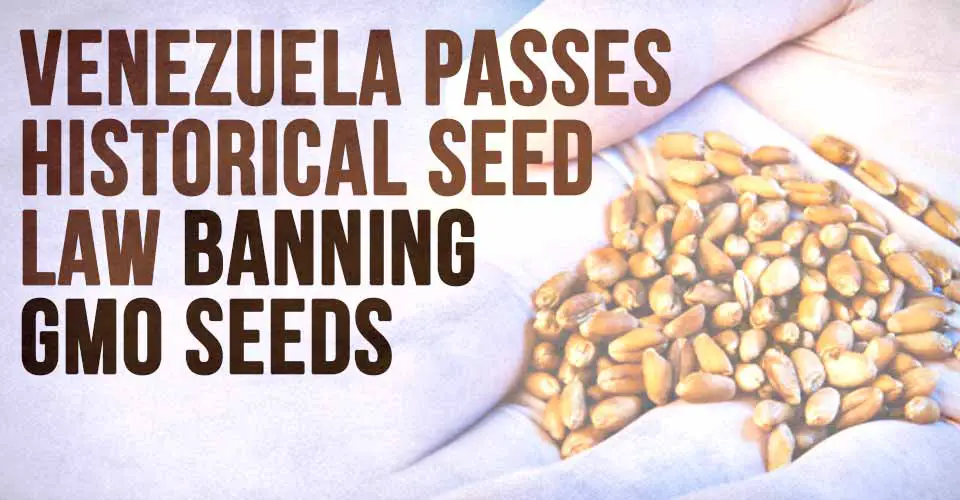
The GMO debate has been gaining attention across the globe for the past several years. Some countries are moving to make sure that GMO foods are labeled while others have banned them completely.
The latest step taken by a country to prevent genetically modified organisms is one that is making history. Venezuela’s parliament has recently passed a law that deals specifically with the seeds that produce GMO’s, which is the first of it’s kind.
Venezuela’s groundbreaking seed law states:
“The objective of this law is to preserve, protect, guarantee the production, propagation, conservation, free circulation and use of seed, as well as the promotion, investigation, distribution and commercialization of the same, from a agro-ecological socialist vision, with special emphasis on the valorization of the indigenous, Afro-descendant, peasant, and local seed, that benefits biodiversity and supports the preservation of life on the planet with the purpose of consolidating our food security and sovereignty, prohibiting the release, the use, the propagation, the entrance into the country and the national production of transgenic seeds and prohibiting the patents and rights of breeders (derechos de obtentor) over seed.”
To accomplish the goal of protecting the integrity of the seeds planted in Venezuela, the law has 6 main goals:
1.-Promote the transition from conventional systems of production based on monoculture and the use of agro-toxins with conventional use agro-industrial and/or corporate seed, to an agroecological system of production and the preservation of the environment in the short, medium and long-term, base on agro-biodiversity.
2.-Promote the production of seeds required to guarantee the national production, with the purpose of doing without importation [of seed] and achieving national sovereignty.
3.-Promote the transition to communal and ecosocialist agriculture, as well as protect agro-biodiversity through the production of local, peasant, indigenous, and Afro-descendant seed.
4.-Revalorize and re-legitimate the local, traditional, and ancestral knowledge, experiences, beliefs and practices of the peasants, indigenous and Afro-descendant other communities.
5.-Prohibit the privatization and monopolistic control of seed.
6.-Orient the organization and planning of public policy in function of the different scales of production, distinguishing policies directed at family agriculture from those of big producers.
This type of seed law could become a reality in other countries around the world, essentially ending the debate of GMO products at the source: their seeds. As more and more countries step up and put these types of laws into place, the GMO footprint is shrinking.
It’s refreshing to see a country take such a bold move in the name of natural, GMO-free seeds.
Related: Monsanto is not the only corporate giant that destroys our world, some of these are just as bad:


